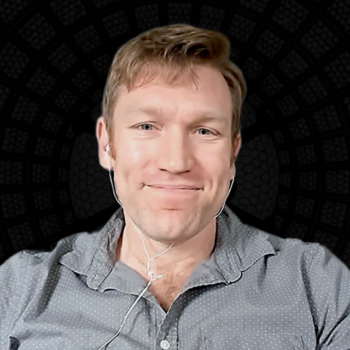Introduction
In a world where science and profit often collide, the story of how bioweapons research transformed into a lucrative industry is both fascinating and alarming. Charles Rixey, a former WMD specialist, sheds light on this transformation in a revealing podcast with Randy Bock. From the aftermath of 9/11 to the COVID-19 pandemic, Rixey uncovers the intricate web of public-private partnerships, profit motives, and scientific censorship that have shaped modern bioweapons and vaccine research. Let’s dive into the details.
The Nexus of Bioweapons and Profit
The Post-9/11 Shift
The turning point for bioweapons research came after September 11, 2001. The U.S. government merged defensive bioweapons research with public-private partnerships, creating a new landscape where profit motives began to dominate. Dr. Anthony Fauci, who initially headed the National Institute of Infectious Diseases, took control of military aspects of this research, marking the beginning of a significant shift.
The Role of Vaccine Research
Vaccine research became the engine driving this profit machine. While the military’s goal was to mitigate threats and protect troops, the private sector saw an opportunity to capitalize on vaccine development. This dual focus blurred the lines between defense and profit, leading to a system where research priorities were often dictated by financial incentives rather than public health needs.
The COVID-19 Pandemic: A Case Study
The Origins of COVID-19
Charles Rixey spent five years with Drastic, an international group of scientists investigating the origins of COVID-19. His work revealed that the pandemic’s origins and the response to it were deeply intertwined. One of his key discoveries was the Fauci-linked scientific censorship that suppressed early discussions about the virus’s lab-leak theory.
The Fauci Controversy
Rixey’s research highlighted Dr. Fauci’s central role in the pandemic response. From the controversial gain-of-function research to the push for vaccines over early treatments, Fauci’s decisions were often criticized for prioritizing profit over public health. Rixey’s work with whistleblowers exposed how funding for risky research was justified under the guise of vaccine development.
The Military’s Role in Bioweapons Research
Defensive vs. Offensive Research
The U.S. military has long been involved in bioweapons research, but the focus shifted from offensive capabilities to defensive measures after the Biological Weapons Convention of 1975. However, the post-9/11 era saw a resurgence of interest in bioweapons, this time under the banner of public-private partnerships.
The Profit Motive in Military Research
Once profit motives were introduced, the military’s research priorities began to change. Projects that were once focused on protecting troops expanded into areas like pan-influenza and pan-coronavirus vaccines, which Rixey argues were unnecessary and driven by financial incentives rather than genuine need.
The Problem with Gain-of-Function Research
What Is Gain-of-Function Research?
Gain-of-function research involves modifying pathogens to make them more transmissible or virulent. While proponents argue that this research helps prepare for future pandemics, critics like Rixey believe it poses significant risks and is often used to justify unnecessary projects.
The Dangers of Gain-of-Function
Rixey points out that gain-of-function research has been tied to the development of vaccines, creating a cycle where potential bioweapons threats are identified and then used to justify further research. This cycle not only increases the risk of lab leaks but also diverts resources from more pressing public health needs.
The Suppression of Early Treatments
The Focus on Vaccines
During the COVID-19 pandemic, the focus on vaccines overshadowed early treatments like hydroxychloroquine and ivermectin. Rixey argues that this was a deliberate strategy to maximize profits, as vaccines are more lucrative than repurposed drugs.
The Attack on Doctors
Doctors who advocated for early treatments faced severe backlash, including loss of medical licenses. Rixey highlights cases like Dr. Meryl Nass, who was targeted for promoting treatments that worked but were not patentable.
The Politicalization of Science
Science as a Political Tool
Rixey believes that the pandemic was used as a political tool to undermine Donald Trump’s presidency. He points to data from military ships showing that COVID-19 primarily affected older individuals, suggesting that the pandemic was exaggerated for political gain.
The Role of Media and Censorship
Scientific censorship played a significant role in shaping the narrative around COVID-19. Rixey’s research revealed how Fauci and others suppressed dissenting opinions, creating a one-sided discourse that prioritized vaccines over other treatments.
The Future of Bioweapons Research
Fixing the System
Rixey is now focused on fixing the systemic issues that allowed the pandemic response to go awry. He advocates for greater transparency, accountability, and a shift away from profit-driven research.
Preventing Future Pandemics
To prevent future pandemics, Rixey emphasizes the need for early treatments, better oversight of gain-of-function research, and a focus on public health rather than profit.
Conclusion
The story of how bioweapons research became a profitable industry is a cautionary tale of what happens when science and profit collide. Charles Rixey’s insights reveal the deep-rooted issues in our current system and highlight the need for reform. As we move forward, it’s crucial to prioritize public health over financial gain and ensure that science remains a tool for good, not profit.
FAQs
Gain-of-function research involves modifying pathogens to make them more transmissible or virulent, often to study their potential impact.
Early treatments like hydroxychloroquine and ivermectin were overshadowed by the focus on vaccines, which were more profitable for pharmaceutical companies.
Dr. Fauci played a central role in shaping the pandemic response, from promoting gain-of-function research to prioritizing vaccines over early treatments.
The military shifted from offensive bioweapons research to defensive measures after 1975, but post-9/11 public-private partnerships reintroduced profit motives into the field.
Preventing future pandemics requires greater transparency, accountability, and a focus on public health rather than profit-driven research.
Discover more from Randy Bock MD PC
Subscribe to get the latest posts sent to your email.

























